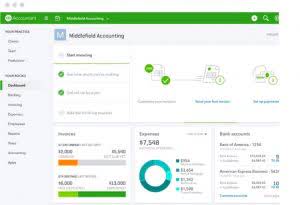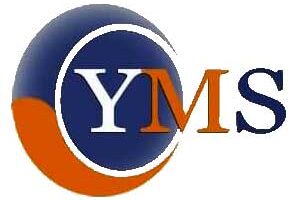
Writing checks and ledger management are a breeze and we can find any errors very quickly. If I have any questions about requirements or processes, TrustBooks support is extremely responsive. Before TrustBooks, my monthly reconciliations were agonizing as I balanced accounts, used multiple spreadsheets, and numerous bank statements. Start a free trial today and discover the power of automation at your firm. According to the ABA, Interest on Lawyers’ Trust Accounts (IOLTA) offers a way to raise money for charity from the interest attorneys earn from their trust accounts. Embrace the future of legal practice with confidence, supported by RunSensible’s comprehensive solutions for trust account management.
Get Paid Faster with Automated Legal Billing
- Trust accounting for lawyers is more than a regulatory requirement; it’s a foundational element of the legal profession’s commitment to integrity, client service, and ethical practice.
- Effective law firm accounting allows you to collect and analyze accurate information about your law firm’s financials—which can, in turn, provide a full financial picture and empower your firm to make data-driven business decisions.
- Legal bodies and regulatory authorities have established rules and guidelines to ensure the proper handling of client funds.
- Firms can readily maintain compliance with the state’s trust accounting laws and regulations while also reducing the risk of errors that could have legal and financial consequences.
- The modern practice of law is fraught with difficulties, even for the most sophisticated practitioner.
- Trust accounting has a long history rooted in the legal profession’s commitment to safeguard client funds and their trust and confidence in the legal system.
With PracticePanther’s integration with TrustBooks, you won’t have to worry about commingling accounts or noncompliance with your state bar, ABA, and IOLTA guidelines. To get a full experience of PracticePanther’s functionality, you can schedule a custom demo to see how the platform https://www.bookstime.com/ can enhance your billing practices and automate your practice. Trust accounting software makes the process of tracking, reporting, and transferring funds easier for law firms. When audit season rolls around, having detailed tracking and reporting of trust accounts is essential.
A Guide to Legal Trust Accounting in QuickBooks and Clio for Lawyers

Paired with legal practice management software like Clio Manage, streamlining your law firm’s accounting processes and keeping all your information up to date becomes easy. Yes, LEAP alerts users about low balances and other important thresholds in trust accounts. This feature is crucial for effective trust account management and compliance with legal and ethical guidelines. This allows law firms to take timely actions to replenish funds or address any issues, thereby maintaining compliance with regulations governing trust accounts, such as avoiding overdrafts or mismanagement of client funds. Law firms also use a process of three-way reconciliation to check that their internal trust ledgers align with client trust ledgers and trust bank account statements.

Three-Way Reconciliation
Now let’s talk about the costs you pay as a lawyer on behalf of your clients. Hard costs are the costs incurred by your law firm, whereby you directly pay the vendor on your client’s behalf. Soft costs are the costs that you cannot track directly back to your client because you did not directly pay the vendor on behalf of your client.
- If you fail to comply with state bar rules when handling your clients’ trust accounts, you can lose your law license.
- When you create a DIY living trust, there are no attorneys involved in the process.
- One of the items that frequently arises in the course of a trust account audit is whether an attorney’s own funds are being improperly held in such an account.
- With QuickBooks trust accounting for lawyers, transaction syncs are fast and accurate.
- The reality is that my accountant does not know the rules for the state bar.
- When setting up a new account, ask your financial institution to provide trust account statements at the end of the reporting period.

For example, law firms that handle real estate matters may require several pooled trust accounts at different financial institutions. On the other hand, a criminal practice may require only one pooled account. The bank statement and the law firm’s internal records do not match.Often, this results from the fact that the attorney is not performing a reconciliation between the two each month. Trust accounts must be subject to a rigorous three-way reconciliation.
Financial data management and reporting is simple and accurate
By pooling the money with other client funds, enough interest is generated to fund public service programs. While the specifics can vary by jurisdiction, when using an IOLTA account, any interest earned on the account is collected and forwarded to the state bar (usually to funds for social justice). While there’s definitely Trust Accounting for Lawyers a big difference between a CPA and lawyer, taking some time to familiarize yourself with basic accounting principles will make it easier for you to understand your law firm’s accounting throughout the year. There are just too many questions and uncertainties concerning ledgers, funds, and state requirements.
What is IOLTA?

My Trust Accounting is Essentially Error- and Stress-Free
- IOLTA stands for “Interest on Lawyers’ Trust Accounts.” Once the earned fees require disbursements from the client trust account, funds are transferred from the trust to the operating account.
- Indeed, such a dramatic change in New York law and practice would probably wreak havoc on the bar and have dire and unforeseen consequences for many clients.
- And, using a software tool like Clio that has safeguards in place to give you peace of mind over trust transactions will help your firm as you scale.
- With Clio Manage handling your cases and Clio Accounting managing your financials, you can streamline operations and minimize manual entry errors–enhancing your firm’s performance from intake to payment.
- Later may be too late and it will certainly be more expensive and worrisome.

